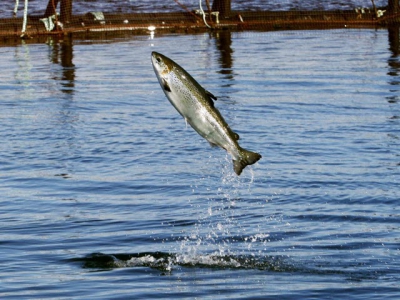Stress linked to slow healing in salmon

Stress slows wound healing in salmon, according to new research undertaken by Nofima scientist Lene Sveen at Nofima.
Sveen, who is finishing her PhD at The University of Bergen, has researched the impact of stress on Atlantic salmon post-smolts’ ability to heal and to produce mucous. She has induced stress by catching the fish, and by varying fish density and size of the fish in the pens.
Sveen used many different techniques to analyse wound healing in stressed and unstressed fish, including microarray. The main gene class that was affected by stress was the immune genes. Their job is to protect open wounds and remove damaged tissue. Many genes involved in wound repair also had a delayed response under stress, causing wounds to close more slowly in stressed fish.
“When a fish is stressed, its immune response changes. Not only do wounds heal more slowly – the fish will also be less able to resist disease,” says Sveen.
“We also found out that when a fish becomes acutely stressed, it loses its protective mucus coating. And it takes more than a day for it to return,” says Sveen.
This is bad news for the fish, as the mucous coating protects the fish against diseases.
“My message is that we must focus on preventative fish health when designing closed containment systems. I think it will be very interesting to see how the industry addresses this challenge.”
“Closed containment aquaculture systems are evolving rapidly, and I can’t wait to see what the fish farming industry’s equivalent to the iPad will be,” says Sveen.
Có thể bạn quan tâm
Phần mềm

Phối trộn thức ăn chăn nuôi

Pha dung dịch thủy canh

Định mức cho tôm ăn

Phối trộn phân bón NPK

Xác định tỷ lệ tôm sống

Chuyển đổi đơn vị phân bón

Xác định công suất sục khí

Chuyển đổi đơn vị tôm

Tính diện tích nhà kính

Tính thể tích ao hồ



 Fish disease guide - Spring Viraemia of Carp
Fish disease guide - Spring Viraemia of Carp  Functionality of yeast fractions in aqua feed: Lallemand…
Functionality of yeast fractions in aqua feed: Lallemand…